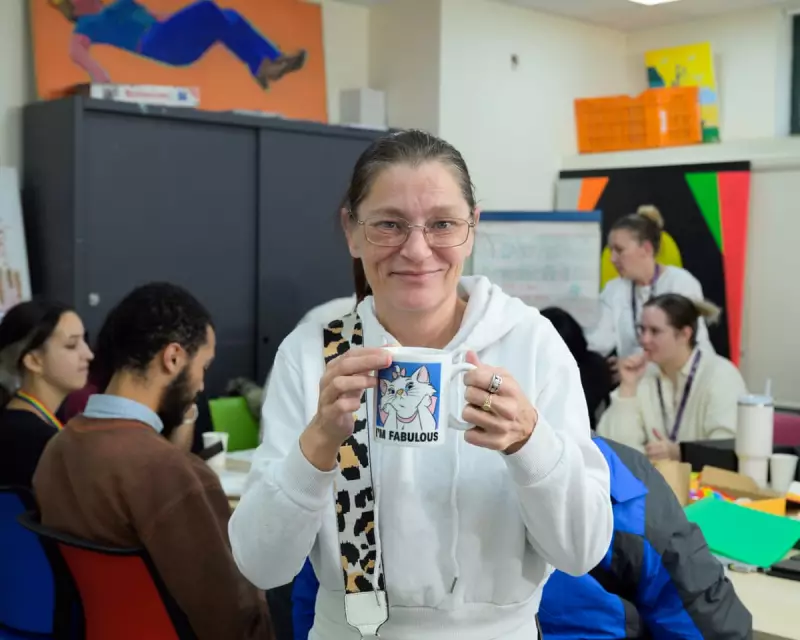
In a small clinic in Denmark Hill, south London, a quiet revolution is taking place in the treatment of cannabis-induced psychosis. The Cannabis Clinic for Patients with Psychosis stands as the UK's only specialist service offering integrated support for adults grappling with both conditions simultaneously.
The Human Cost of High-Potency Cannabis
Isiah's story reveals the devastating impact modern cannabis can have. Now 29, he found himself on the roof of a Lewisham shopping centre in November 2023, ready to jump. His descent into severe paranoia began with cannabis use at 14, escalating to daily consumption by 17. "I was very done," he recalls of that night. "It felt there was no other route or option."
His mother, Nicci, 53, remembers the transformation in her once fun-loving son. "I just didn't recognise my son," she says. "There were moments he could only just about trust me." Despite hospital intervention and medication, Isiah still uses cannabis daily while waiting for one-to-one support from the clinic.
A Growing Mental Health Crisis
The clinic's work addresses what experts describe as an emerging epidemic. A 2019 King's College London study published in the Lancet Psychiatry found that 30% of new psychosis cases in London were linked to high-potency cannabis (containing 10% or more THC).
Dr Diego Quattrone, consultant at University Hospital Lewisham's psychiatric intensive care unit, reports that at least 80% of new admissions disclose cannabis use. He emphasises that daily use of high-potency cannabis is associated with "a distinct subtype of violence driven by psychotic symptoms, such as paranoid delusions and hallucinations."
Professor Sir Robin Murray, a leading psychiatric researcher at King's College London, offers a stark warning: "I think we are at the beginnings of an epidemic." He compares the situation to experts warning about fast food and obesity in the 1980s. "As cannabis becomes more available, more potent, then we're going to see more, more and more psychosis."
The Clinic's Innovative Approach
Founded through the determination of Dr Marta Di Forti, Professor of Drug Use, Genetics and Psychosis at King's College London, the clinic operates with just two part-time practitioners. Despite its small size, it has achieved remarkable results.
Of those who completed the clinic's intervention, 74% have stopped using cannabis, and 91% of that group have returned to education or work. The clinic takes only 16 people at a time, mostly men in their 20s, offering weekly one-to-one sessions for up to a year, online support groups, and monthly brunch meetings.
Senior practitioner Jodie Lynn explains their practical methods: "We do role-play: how to have difficult conversations. Some people find it really difficult to set boundaries with their peers. And there are cannabis diaries: we get people to record when they're having joints, how they were feeling before and afterwards – the triggers."
The clinic also addresses the challenge of returning dreams during withdrawal. "Heavy cannabis users typically never dream," Lynn notes. "When dreams return as they withdraw, they can be terrifying."
Success Stories Amid Rising Demand
Katie, 46, represents the clinic's transformative potential. She first tried cannabis at eight years old and became a daily user by 12. "I was self-medicating with it for many years," she admits. Hearing intrusive, commanding voices from a young age, she smoked about 20 joints daily by age 20.
"I was running down the Old Kent Road wearing fluffy pyjamas and nothing on my feet at 2am thinking I was God." Over two decades, she was sectioned 50 times before finding the clinic. Now abstinent for a year, she says: "I wouldn't say I'm better, but I'm a lot healthier – I'm able to do a lot more."
Despite decreasing cannabis use nationally, the problem is intensifying among users. Dr Di Forti points to the Cannabis and Me study, which found that 50% of current users consume daily, with average weekly consumption of 17 joints. The potency has increased dramatically – from around 3% THC forty years ago to 14-16% THC today, with high-strength varieties dominating 94% of London's street market.
With 14 people currently waiting for vital one-to-one sessions, Dr Di Forti expresses concern about delays: "The chances of them getting a severe presentation of their psychosis and needing hospital admission is between three and four times greater."
As Britain faces this growing mental health challenge, this small London clinic demonstrates both the urgent need for specialised support and the life-changing results it can achieve.






